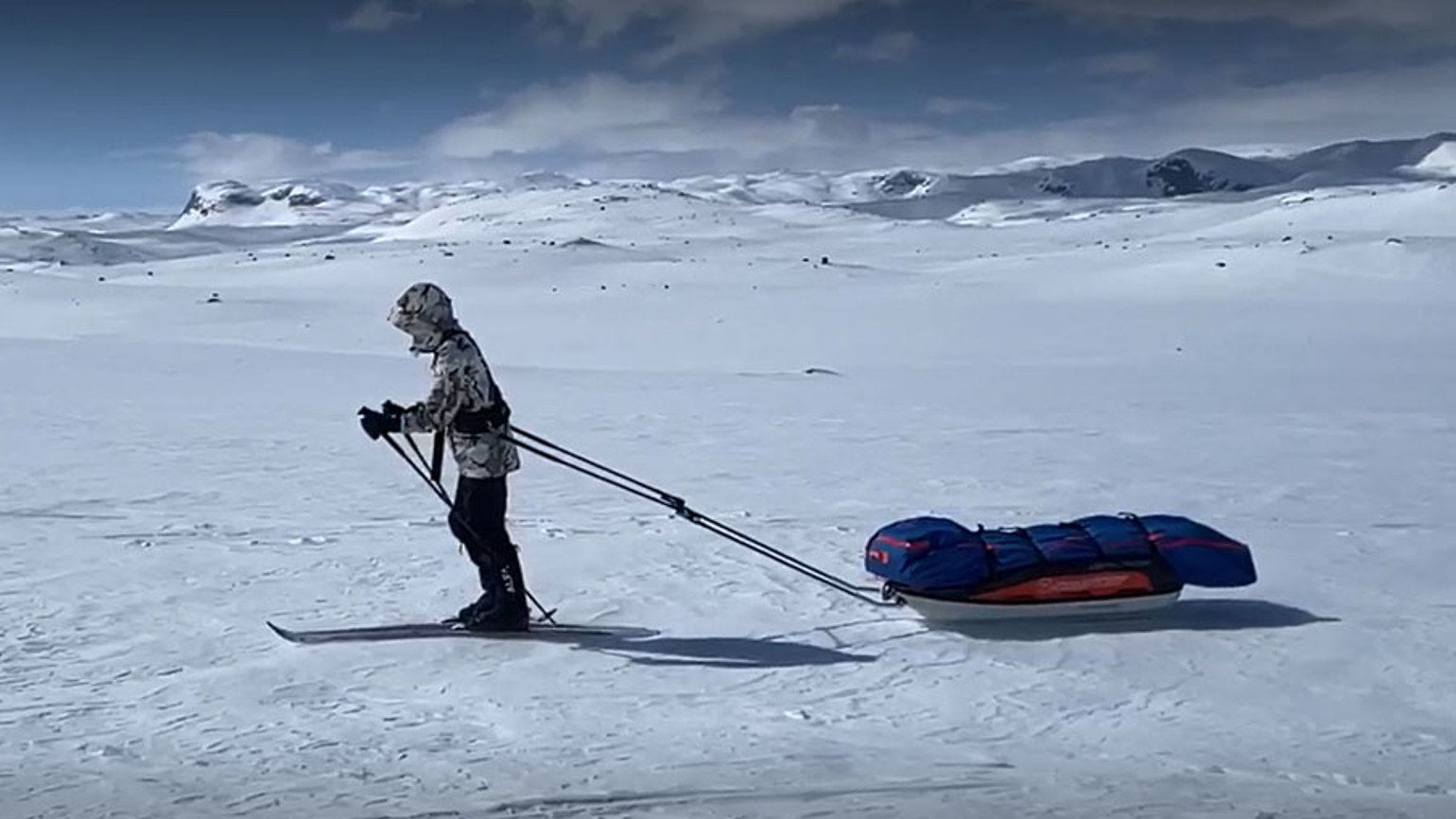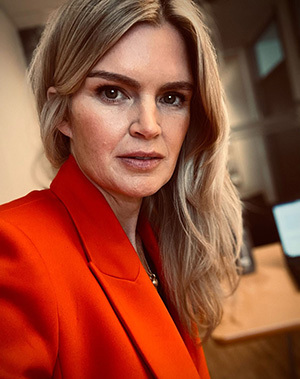News - Press Release

After surgeries for two cancers, Silje Løkeng could barely walk to the end of her drive.
Now Silje, a Wellbeing Manager with TechnipFMC in Norway, spends up to two hours a day dragging tires behind her as she trains for a breast cancer charity expedition across the Greenland ice cap.
Her team will ski on average 20 kilometers every day for 28 days in temperatures as low as -25˚ Celsius (-13˚ Fahrenheit), hauling a 70 kilogram sled packed with all the equipment and food she will need for the unsupported journey.
On Expedition Pink Ribbon in May 2023, Silje will be joined by three other breast cancer survivors – from Sweden, Denmark, and Greenland – as well as two female guides and polar explorer Liv Arnesen, the first woman to ski to the South Pole unsupported.
“When I started rehab, the furthest I could walk was to my mailbox,” Silje, pictured below, said. “Now I’m training to ski across an ice cap. I’m not the same woman in body or mind that I was before treatment. Survivors expect to feel elated, but I was in a dark place and I’ve worked hard to care for my body both physically and mentally. I’ve taken it step by step.

“When I started rehab, the furthest I could walk was to my mailbox,” Silje said. “Now I’m training to ski across an ice cap. I’m not the same woman in body or mind that I was before treatment. Survivors expect to feel elated, but I was in a dark place and I’ve worked hard to care for my body both physically and mentally. I’ve taken it step by step.
“We’ve been training for a year, building strength and endurance and learning the survival skills we’ll need. Simple things like getting out of your sleeping bag, getting dressed for the weather, and taking down the camp are complicated by the extreme cold even before we start cross-country skiing for eight hours a day. We’ll have no days off during the crossing unless the weather gets really bad. The sleds are our lifeline – we’ll consume at least 3,000 calories a day to keep going.”
The mother of two was diagnosed with breast cancer in July 2019, at the same time pre-cancerous cells were found in her cervix. After five major surgeries and hormone treatment, Silje was on her way to recovery.
Her efforts are just one of the ways that our people are making a difference in the communities where we live and work – and her expedition is aiming to have a global effect.
“I was lucky – I found my lump early because I check my breasts every month,” said Silje. “I’d have had entirely different treatment if I’d been sick five years earlier, because research has improved treatment so much and they could identify and treat my specific cancer. That’s why I want to highlight the need for breast cancer research, and to raise money for the researchers. It’s how we’ll save more women.”
The team is still raising money to fund the trip. The members plan to ask people to “join in” with their journey at home by walking for 30 minutes a day and raising sponsorship. Silje said, “That daily walk won’t just help fund research, it’ll be good for the walker’s mental health because it gives people time to themselves as well as exercise.”
More news
-

News | December 08, 2025
TechnipFMC marks milestone 100th Subsea 2.0® tree delivery with client that placed first order
-

News | November 19, 2025
TechnipFMC Reinforces Global Leadership Through Strategic Technology Days Across Three Continents
-

News | November 14, 2025
TechnipFMC Recognized as Local Content Champion at Namibia Energy Connect 2025